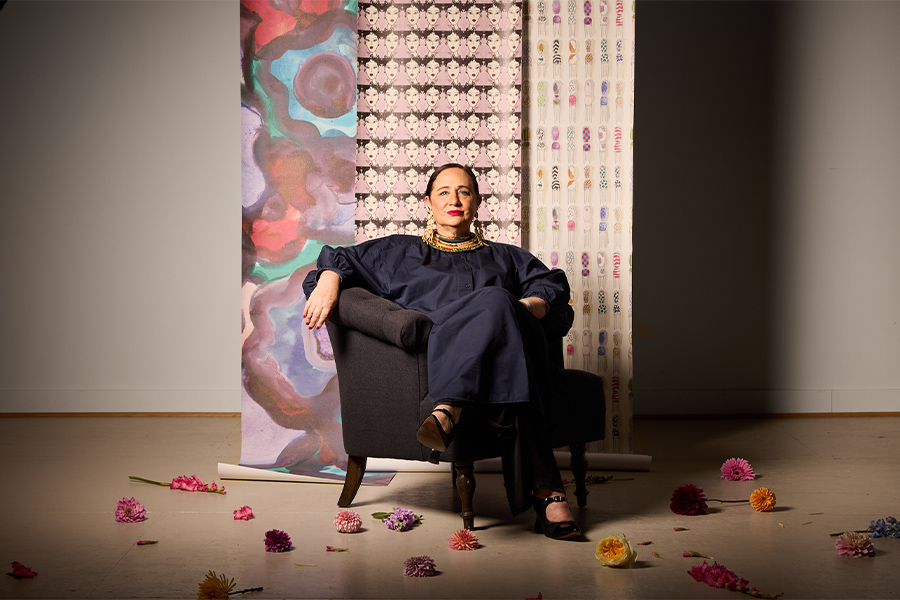Raised near Kruger National Park in northeastern South Africa, Anomien Smith was “out in nature every single week,” recalls the creative director and principal of Luxury Frontiers. Her avid bird-watching family was passionate about environmental conservation, instilling Smith with the values that guide her approach to the eco-conscious lodges, camps, and resorts around the globe she helps develop for such well-known operators as Aman and Belmond.
Smith, who received her master’s in architecture from the University of Pretoria in South Africa, has an expansive view of sustainability that transcends preservation. “It’s a mind shift,” she points out, one that yields smart design by tapping into available resources like solar power.
Smith believes there should be a positive level of necessary discomfort when traveling to remote areas. To that end, Luxury Frontiers—which is synonymous with upscale accommodations organically inserted into places like the Bahamas, Botswana, Costa Rica, Mexico, South Africa, Tanzania, Thailand, the U.S, and Zambia—can help expose guests to unfamiliar aspects of disparate cultures.

A tunnel-like walkway emulates a caterpillar crawling into a copper cocoon at Naviva, A Four Seasons Resort in Punta Mita, Mexico
Much of the Luxury Frontiers design process is research-driven, amplifying these nuances along the way. Consider the brand’s forthcoming projects in India, which illustrate the country not as a monolith but a collective of regions rooted in their own distinctive traditions. There is also a property in the works in Kenya, which spotlights the local community’s furniture-making skills. “They don’t have electricity, but they have these hand tools and what they create with them is amazing,” she says.
The relationship between the structures brought to life by Luxury Frontiers and their respective surroundings is critical. “We don’t want to scar the earth. We don’t want to cut and fold too much because the moment you do that, it’s gone forever,” she explains. Nayara Tented Camp in La Fortuna, Costa Rica, for example, intentionally overlooks the volcano at Arenal National Park, and Naviva, a Four Seasons Resort in Punta Mita, Mexico, deftly weaves tents into the Pacific Ocean jungle landscape.
Community is another important aspect of the Luxury Frontiers ethos. In 2023, after Cyclone Freddy devastated Mozambique, the company, led by architect Kyle Weedman, helped rebuild the Pomene Community School pro bono. “We loved the idea and, because we worked in the Bahamas, we knew how to design for hurricanes,” she points out. “We used those very elemental things to design an adaptable school.”
There, the hardy brick-and-mortar construction was buoyed by corrugated sheeting on the roof and locally produced breeze blocks, which provide natural ventilation and stand in for glass windows easily blown out by forceful winds. “With the bright colors and built-in seating,” says Smith, “it’s robust but also sophisticated.”

The Nayara Tented Camp is nestled in the lush Arenal National Park in Costa Rica

Casa Paloma, the four-bedroom residence at Nayara Tented Camp, has two main tents that are connected by a large terrace
This article originally appeared in HD’s September 2024 issue.


